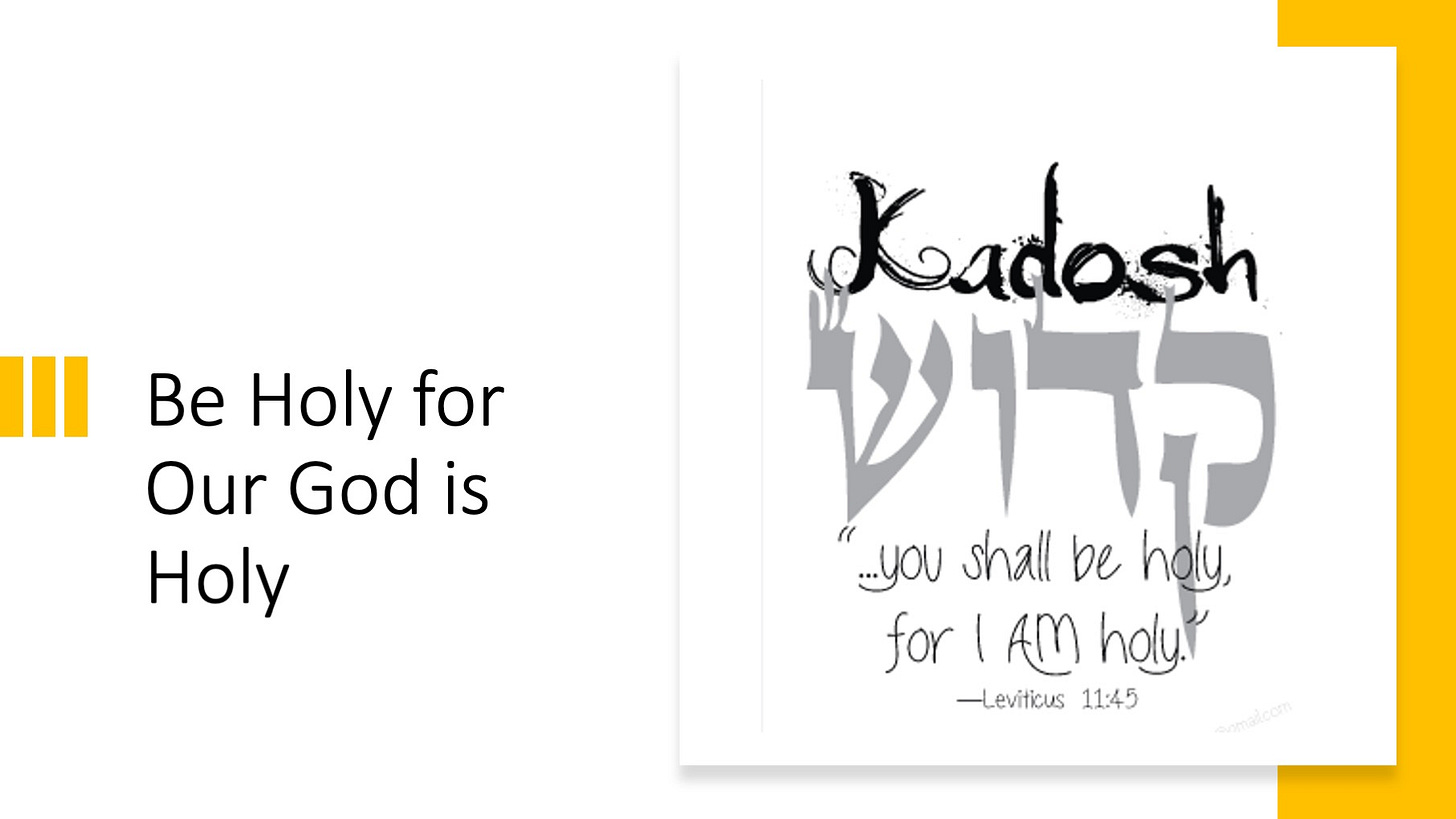Psalm 99:5, 6, 7, 9
The Book of Isaiah contains an awe-inspiring vision of the Lord “sitting upon a throne, high and lifted up”. He is surrounded by the seraphim who sing a song that is familiar to us from the Eucharist: “Holy, holy, holy is the LORD of hosts; the whole earth is full of his glory!” (Is 6:1-3). The psalmist declares the same truth that the angels: “Holy is the Lord, our God” (Ps 99:9).
The Hebrew word “holy” includes a range of meanings that indicate difference, separation, and uniqueness. When the biblical authors tell us that the Lord is holy, they mean that He is like no other. The holiness of God can be compared to the brightness of the sun that prevents the angels and us from looking directly at God. Both the seraphim and Moses covered their faces while standing in the presence of God. The holiness of God can also be compared to nuclear energy that evokes fear. Isaiah was so terrified seeing the Lord that he thought he was about to die. A similar experience is narrated in the book of Revelation, where Saint John witnessing the holiness of the risen Christ “fell at his feet as though dead” (Rev 1:17).
And yet, the Holy One wants to communicate with us and adopts the modes of communication to our capabilities. In the Old Testament, the people could only hear God speaking to them. He also inspired certain people to communicate his words to the entire people of God. In the New Testament, we reach another level of communication. The Holy One made himself visible in Jesus Christ. Saint Paul uses the metaphor of icon to describe this new mode of communication. Jesus Christ is the icon of the invisible God (see Col 1:15) and whoever sees him sees the Father (see John 14:9).
God’s holiness calls for holy living. In the Book of Leviticus, we often find the phrase: “You shall be holy, for I the LORD your God am holy” (Lev 19:2, see also Lev 11:44-45; 20:7). This call to holiness was reiterated by the apostles of Christ. "But as he who called you is holy, you also be holy in all your conduct, since it is written, 'You shall be holy, for I am holy.'" (1 Peter 1:15-16). But, what does it mean to be holy as humans? Saint Augustine defines it in this way: "To be holy does not mean to be flawless, but to be set apart for God, to be dedicated to seeking His will and living in communion with Him."
Our God is holy, unlike any other, and He graciously extends an invitation to relationship and holiness. Let us embrace this call, seeking to live for God, turning away from sin, and imitating Christ in all that we do. Let us also keep in mind that holiness is not achieved through our own efforts alone, but through the empowering work of the Holy Spirit as we walk in step with Him.




